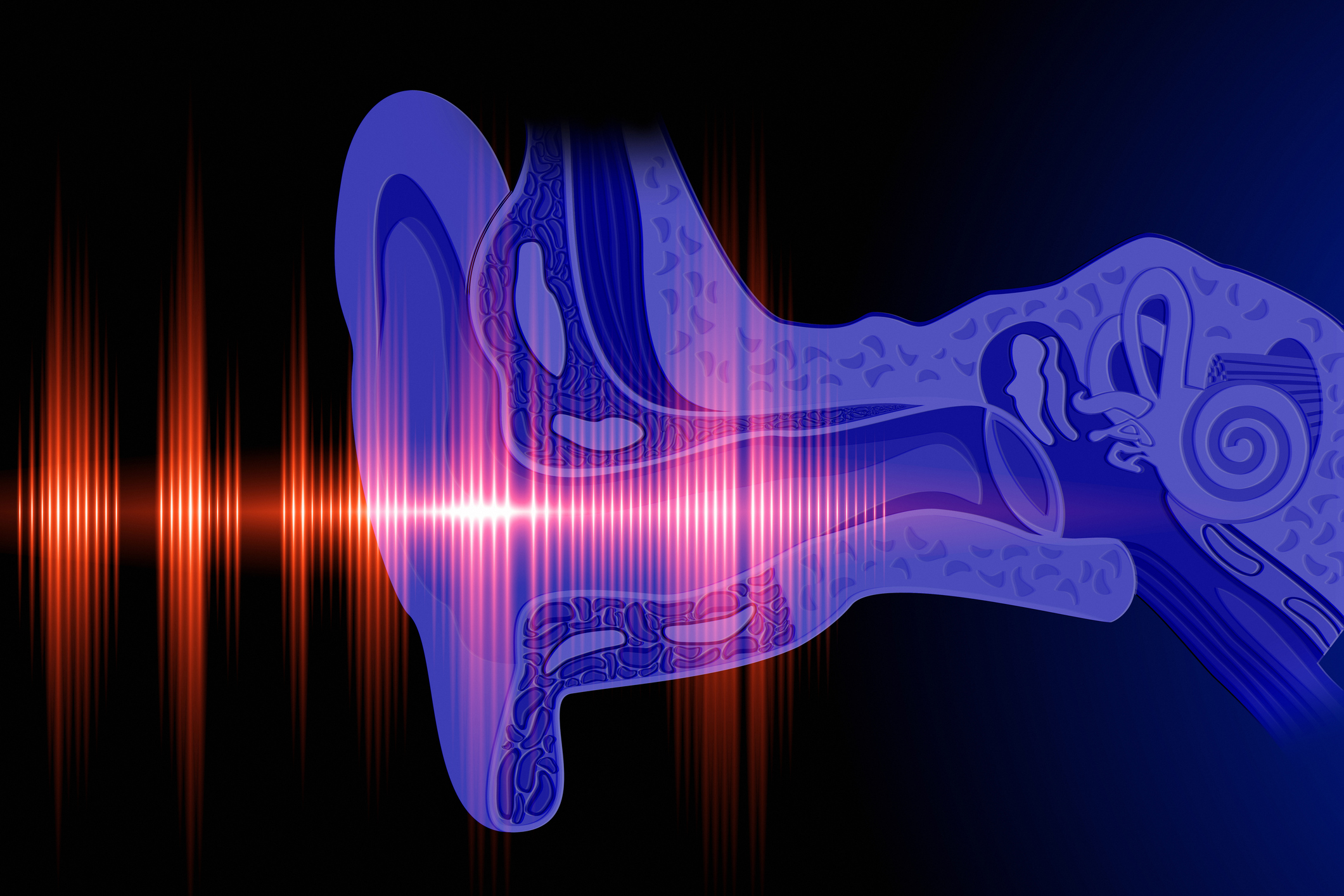-

Investigating Protein’s Role in Hearing Loss
The fast motor function of prestin, a protein found in the inner ear, is essential for mammalian hearing, according to a Northwestern Medicine study published in the Proceedings of the National Academy of Sciences.
-

Sex-Specific Mechanisms for Major Depressive Disorder Identified in Response to Dysregulated Stress Hormones
Northwestern Medicine investigators have discovered novel sex-specific mechanisms that control how stress hormones impact dopamine transmission and motivation, findings that can inform new therapeutic strategies for treating major depressive disorder.
-

Pre-Surgery Immunotherapy May Increase Survival in Advanced Melanoma
Patients with advanced-stage melanoma who received immunotherapy both before and after surgery had longer event-free survival than patients who received immunotherapy only after surgery, according to a recent clinical trial published in the New England Journal of Medicine.
-

Hormone Therapy Plus Current Treatments Improves Survival in Prostate Cancer
Combining a new hormone therapy drug with chemotherapy and another hormone therapy increased overall survival in patients with high-volume and both high-risk and low-risk metastatic hormone-sensitive prostate cancer, according to a post hoc analysis published in the Journal of Clinical Oncology.
-

How ChatGPT Has, and Will Continue to, Transform Scientific Research
Northwestern experts weigh in on how ChatGPT has and will continue impact biomedical research, and how artificial intelligence can be used to support the advancement of science and medicine.
-

New Directions for HIV Treatment
Northwestern Medicine scientists have identified a new compound which could inform future HIV cure strategies, according to research published in Science Advances.
-

Humans are Not Just Big Mice: Identifying Science’s Muscle-Scaling Problem
A new study is the first to show that extrapolating physiological findings from small animals can produce incorrect predictions in humans.
-

AOA Honors New Members
Feinberg’s chapter of the Alpha Omega Alpha (AOA) medical honor society welcomed 42 new members in a ceremony on March 15, recognizing outstanding educational achievement and significant contributions to medicine.
-

Celebrating Feinberg’s 2023 Match Day
Years of anticipation erupted in a flurry of torn envelopes on Friday as fourth-year Feinberg medical students found out about their residency matches during this year’s Match Day celebration.
-

Predicting Risk of Blood Clots in Brain Tumors
Northwestern Medicine scientists have developed a new tool to predict the risk of venous thromboembolism in patients with adult-type diffuse gliomas.
-

Understanding How Exercise Induces Systemic Metabolic Benefits
Northwestern Medicine scientists have uncovered a mechanism by which exercise activates metabolic benefits in the body, according to a new study published in Cell Metabolism.
-

Future Directions in Continuing Medical Education
Melissa Bregger, MD, FACP, and Clara Schroedl, MD, MS, provide an update on their vision for continuing medical education at Feinberg.
-

Lieber Receives VA Rehabilitation Research and Development Award
Richard Lieber, PhD, MBA, professor of Physical Medicine and Rehabilitation, has received the 2023 Paul B. Magnuson Award from the U.S. Department of Veterans Affairs for Outstanding Achievement in Rehabilitation Research and Development.
-

Sex Differences in Neural Mechanisms of Decision-Making
Investigators have discovered novel neural mechanisms that influence sex differences in the motivation based on past experiences, according to findings published in Nature Neuroscience.
-

Medical Student Discusses Helping a Patient Communicate
Caroline Zhao, a fourth-year medical student at Feinberg, wrote about her experiences assisting a patient with a language barrier in the journal Academic Medicine.
-

McGaw Hosts Third Annual Health Equity Week
McGaw Medical Center of Northwestern University recently hosted the third annual Health Equity Week, a week-long series of educational programming exploring healthcare inequities and disparities, and solutions to address them.
-

Studying the Impact of Stem Cell Transplants
People with sickle cell disease who receive nonmyeloablative stem cell transplants are at greater risk for developing new tumors, according to a new study published in the Journal of Clinical Oncology.
-

Understanding the Role of Long-Lived Mitochondrial Proteins
Ewa Bomba-Warczak, PhD, is employing metabolic stable isotope pulse-chase labelling and high-resolution shotgun mass spectrometry to track and characterize long-lived mitochondrial proteins in the brain throughout a mouse’s lifespan.
-

A Day in the Life: Evan Edwards
Meet Evan Edwards, a third-year MD student at Feinberg School of Medicine and join him for “a day in the life” on the surgery clerkship.
-

Social Deficits and Seizures in Autism Type Tied to Overexcited Brain Circuits
Northwestern Medicine scientists have identified the cause of a genetic subtype of autism and schizophrenia that results in social deficits and seizures in mice and humans.





